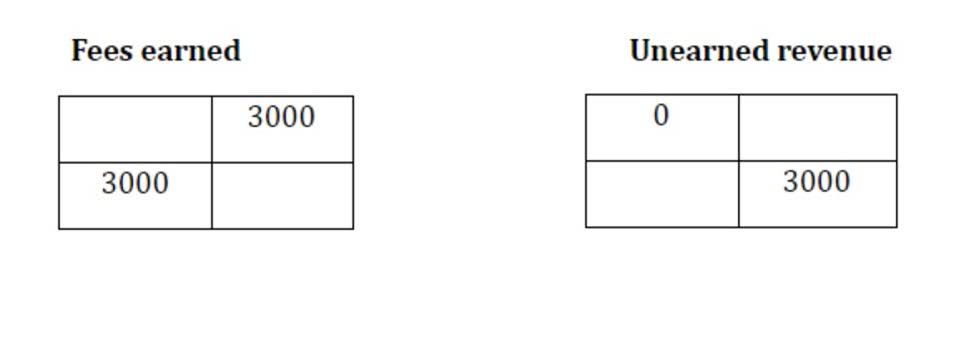
When it comes to law firm finances, knowledge is more than just power—it’s key for succeeding long term and staying compliant with ethics rules. One crucial source of financial knowledge for any firm is its law firm chart of accounts. The Gawie le Roux Institute of Law offers a bookkeeping course for paralegals and attorneys that will teach you how to balance the books in your law firm. You will learn helpful financial management skills and accounting principles needed in the legal world.
- It allows legal practitioners to analyze trends in spending patterns over time and adjust their budgets accordingly based on these insights gained from accurate expense records.
- The legal bookkeeper can often assist with budgeting because of their knowledge of the business and its current financial situation.
- Having too many accounts creates headaches later on, as it takes more time to review the books and increases your chances of making mistakes.
- Whether you are a small firm or a growing practice, investing in specialized software like LawAccounting will ensure your financial management is in capable hands.
- They summarize and organize all the company’s financial transactions chronologically in a systematic manner.
- Trusted across all business sectors, our technicians are among the most experienced and well trained.
- While QuickBooks Online is also widely used and can be a good option when paired with legal practice management tools, it’s a general-purpose accounting software and doesn’t offer law-specific features out of the box.
What is a client trust account, and why is it important?
- Using accounting software or a professional bookkeeping service can help you avoid those mistakes, as these solutions have error-reducing features and layers of checks and balances to ensure your numbers are correct.
- In legal bookkeeping, it ensures financial clarity, compliance, and organized financial reporting.
- While the thought of dealing with an audit is often frustrating and stressful for most legal organizations, having an experienced bookkeeper by their side eases that frustration.
- Recording receipts diligently and reconciling accounts regularly are vital steps in expense tracking.
- Some popular accounting software choices include QuickBooks, Xero, and Clio, all of which cater to the specific needs of law firms.
That’s why we recommend you should hire a professional bookkeeping services for law firms. While you spent most of your life becoming a seasoned lawyer, accounting is a different area and not your expertise. Although you now adjusting entries understand the common mistakes in accounting for law firms, you’re still an accountant or bookkeeper.
Law Firm Accounting Guide for Optimizing Your Finances

Consider what functionality would be most useful, and make them deal-breakers when selecting an option. When you know exactly where your law firm’s money is, it’s easier to identify what parts of your firm are successful and where you’re struggling, to make more informed and strategic business decisions. It’s essential that your firm’s bookkeeping of financial transactions and accounts be meticulous and accurate. And when you choose a cloud-based legal accounting software, everything runs smoother. Law Firm, a mid-sized practice specializing in commercial litigation, encountered hurdles due to inefficient bookkeeping law firm bookkeeping procedures, resulting in billing discrepancies and compliance risks. To address these challenges and streamline their financial operations, they opted for specialized legal bookkeeping software.
The difference between law firm bookkeeping and accounting

Whatever software you choose should be user-friendly enough to Remote Bookkeeping meet the needs of those using it the most at your firm. If your firm’s users tend to need more technical support when learning a new tool, look for options that are easy to navigate and offer personalized customer support. Without regular and accurate financial reporting, you may not see potential opportunities, and smaller problems may inadvertently escalate. For example, in Clio Accounting, you can easily generate financial reports to help prioritize what’s most relevant for your firm and make data-driven decisions. Utilize legal conflict check software tools that offer built-in compliance checks to identify and rectify any discrepancies proactively. Automate the invoice generation process to save time and improve cash flow.

- Law firms deal with various financial transactions, such as receiving payments from clients, paying expenses, and managing trust accounts.
- Legal accounting and bookkeeper law firm are surely one of the largest you face.
- Bookkeeping for attorneys is more than managing numbers — it’s about protecting your practice, staying compliant, and ensuring profitability.
- You’ve now delved into the world of legal accounting, understanding its basics, methods, importance, functions, and best practices.
- Budgeting in legal accounting is essential as it helps plan resources effectively.
- Failure to allocate appropriately can lead to inaccurate books, and battle compliance issues.
By prioritizing features that align with the unique demands of legal accounting, law firms can set a solid foundation for financial integrity, operational efficiency, and long-term success. While bookkeeping is more transactional and administrative, accounting is more subjective, giving you insights into your law firm’s financial health based on legal bookkeeping for law firms. One key part of the accounting process is analyzing financial reports that provide you with a better understanding of actual profitability and awareness of cash flow in your business. Choosing the right legal bookkeeping software is essential for law firms looking to improve their financial operations, ensure compliance, and enhance overall efficiency. While solutions like QuickBooks, Xero, and Accounting Seed offer excellent general accounting features, LawAccounting is the best legal bookkeeping software for law firms in 2024.
How to succeed at accounting for law firms and bookkeeping in 2025
By including general retainers in a law firm’s chart of accounts, you can more easily monitor these accounts. Accountants typically take the books and records prepared by a bookkeeper and use them to provide business advice, prepare financial statements, and file tax returns. Alright — you’ve got your business accounts set up and you’re (hopefully) following the trust accounting rules. Law firms must ensure bank statements, trust account ledgers, and client ledgers match and are accurate. This is done by completing three-way trust reconciliation between all of these statements. Legal accounting and bookkeeping are vastly different, though many people use the terms interchangeably.

Begin delegating tasks to your virtual bookkeeper and free up your time immediately. There is no need to download QuickBooks Online because it is connected to the cloud, which means you can access online accounting from any device with an internet connection. You can download the QuickBooks Online mobile app from the Google Play Store or Apple App Store.